Geopolitical Review 2008
In 2008, global events swirled around the planet with all the organization and order of a Category 5 hurricane. Headlines hurtled by, even as troubles and woes accumulated in flash floods. Yet, in all this chaos, there is actually order and purpose to this dark, turbulent, swirling, global storm.
Plowing through the headlines, the Trumpet brings you what mattered most in 2008—and how this perfect storm is leading to the bright dawn of a new age!
Iran Conquered Lebanon
One of the most significant events in the Middle East this year was Hezbollah’s takeover of Lebanon. In May, the Lebanese government tried to crack down on the Iranian-backed terrorist group. It failed. Within a day, Hezbollah blockaded the airport, shut down pro-government news outlets, and besieged the headquarters of two of Lebanon’s most prominent leaders, showing the government that this force can shut down the country whenever it likes. The government surrendered.
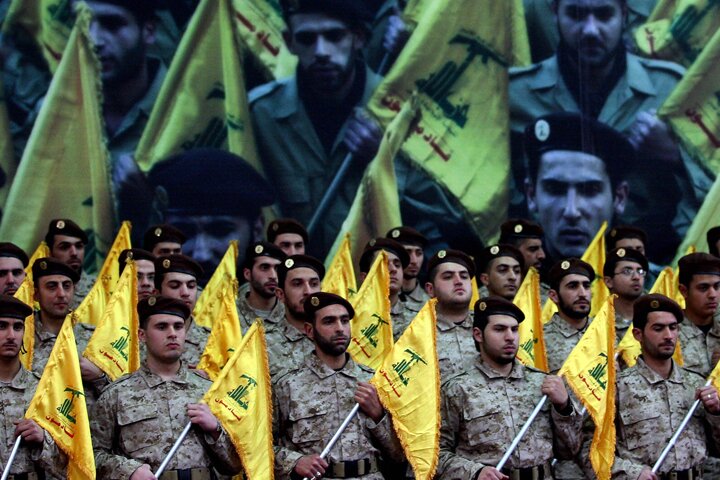
The Lebanese government gave Hezbollah what it had been holding out for 18 months to get: veto power in a new government. Once again in the Middle East, violence paved the way for more political power for terrorists. Hezbollah’s veto power in the new national unity government means the Lebanese government can pass no legislation calling for the terrorist group’s disarmament. It means the government can’t direct the army to take action against Hezbollah or stop a Hezbollah attack on Israel. In truth, it means the government can’t make any decisions that might favor Israel or the West. All key decisions and appointments have to be approved by Hezbollah.
Meanwhile, the rest of the world stood by and did nothing as Iran effectively took over Lebanon. As Trumpet editor in chief Gerald Flurry wrote, “The fact that the U.S. simply will not confront Iran is the single greatest proof today that God has broken the pride of our power.”
Iran Pushed Egypt Closer to an Alliance
In December 2007, the Egyptian deputy foreign minister made the first official visit by an Egyptian official to Iran since diplomatic ties between the two countries were severed in 1979. In January, Iranian President Mahmoud Ahmadinejad and Egyptian President Hosni Mubarak spoke to each other over the phone. Egyptian and Iranian leaders hadn’t gotten together since the mullahs murdered Egypt’s president in 1981. The fact that these two leaders are even talking to each other shows a huge shift Egypt-Iran relations.
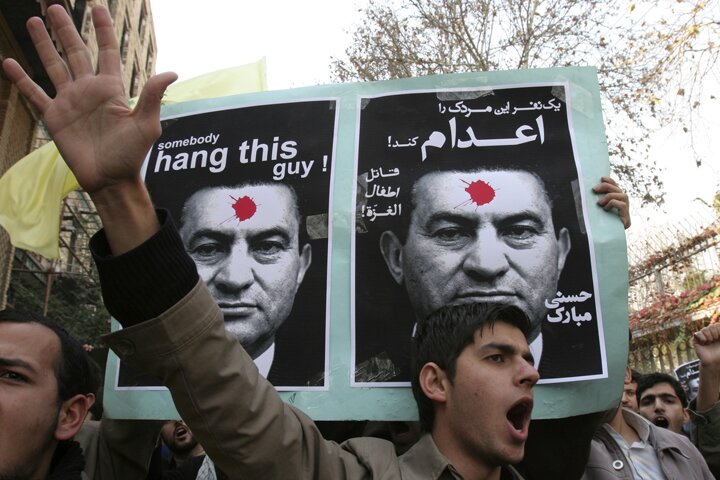
This relationship will strengthen in 2009, likely thanks to Tehran’s leverage. Egypt’s Muslim Brotherhood, a radical Islamic party, is very popular. It did not do well in the 2008 elections, but only because the government of the 80-year-old Mubarak rigged the vote. If the relatively Western-friendly president dies, the Muslim Brotherhood will likely take over.
This is just want Iran wants. In December, Iranians hit the streets calling for Mubarak’s assassination, and state newspapers called on Egyptians to rise up against their government. With Mubarak out of the picture, Egypt would become a more radical, closer ally of Iran.
Pakistan Turned More Radical
Pakistan was never a perfect ally in the war on terror. Its population is radicalized, Osama bin Laden shirts are not uncommon, and the Taliban comfortably uses Pakistan as its base for attacks on nato forces in Afghanistan. Insurgents also attack U.S. supply lines that run through Pakistan to Afghanistan. Much of this occurred under the comparatively Western-friendly administration of Pakistani President Gen. Pervez Musharraf.
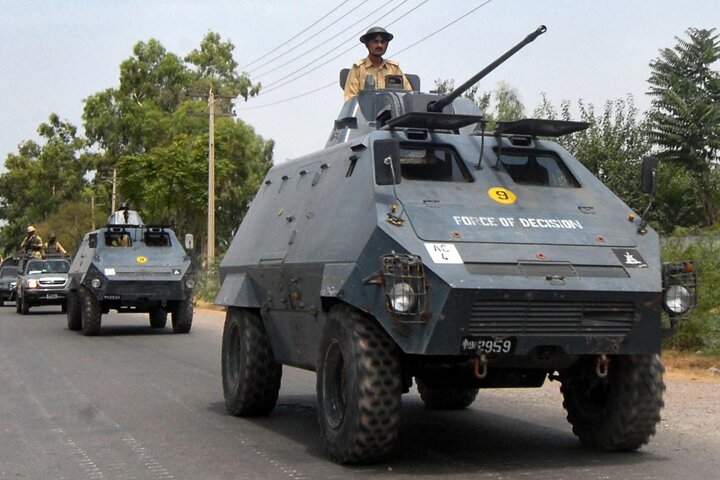
But soon, Pakistan may no longer be an ally at all. The unpopular president resigned in August after the U.S., ironically enough, pressured him to resign as head of the army. The Pakistani Army, besides possessing nuclear weapons, was also the force that held the country together. With Musharraf now gone from the scene, and if the recent terrorist violence in Mumbai is any indication, Pakistan’s failing state will become an even more active hive of terrorism and Islamist extremism as the weak administration focuses on opposing India—possibly by directly fueling terrorists to fight India by proxy.
Germany Conquered Kosovo
After months of suspense, Kosovo declared independence on February 17. A special session of the Kosovar parliament voted 109-0 in favor of severing ties with Serbia. “From now onward, Kosovo is proud, independent, sovereign and free,” Prime Minister Hashim Thaci, a former anti-Serb guerrilla leader, said.
Berlin recognized Kosovo within three days of its declaration of independence, and most other European nations swiftly followed Germany’s lead. Günter Gloser, Germany’s minister for Europe, went so far as to say Serbia also needed to recognize Kosovo if it wanted to be admitted into the European Union in the future. Germany is adamant that both Kosovo and Serbia become separate states in Berlin’s United States of Europe.
To some extent, Russia understands Germany’s true intentions for the Balkans. This is why the Kremlin sent Foreign Minister Sergei Lavrov and former First Deputy Prime Minister Dmitri Medvedev to Serbia only a week after Kosovo declared independence to stand in support of Serbia as Moscow attempted to stall Berlin’s power play in Kosovo.
Sectarian violence will increase in Kosovo and throughout the Balkans as Germany’s EU and Russia compete for influence. Russia may make certain gains, but 2008 leaves Germany the conqueror of the Balkans.
Berlin Broke Out the Bundeswehr
After decades in the shadows, the German military is again taking an aggressive role in global affairs. On January 16, the Bundeswehr deployed 250 additional German troops to Afghanistan to fulfill a special combat role alongside 3,500 German troops already there. German Defense Minister Franz Josef Jung announced that this German quick reaction force may also take part in combat missions in the south of the country as long as the conditions of deployment are dictated by Berlin. Germany has reserved military aid contributions to the American-led Afghan mission as a bargaining chip in order to hold out for more of a say in controlling the strategic development of that war.
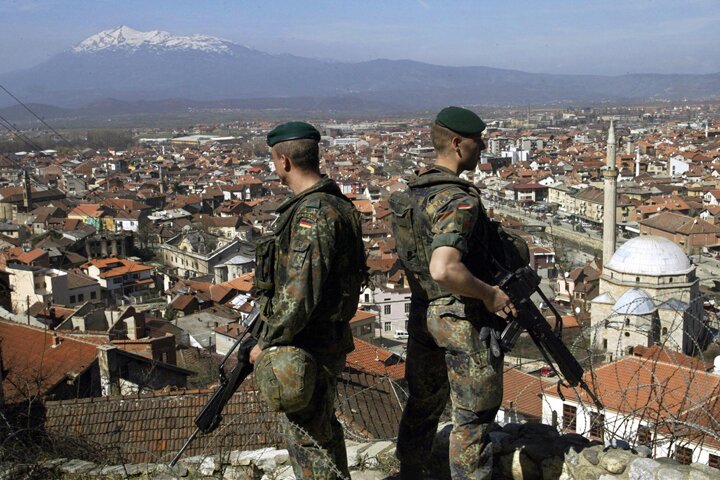
In addition to its involvement in Afghanistan, the German military continues to lead the charge to secure the Balkans. On February 29, the Bundeswehr said it would deploy 500 more Bavarian troops to Kosovo to bolster the 2,000 German military personnel already in the region and help stabilize the chaos first unleashed back in 1991 when the German-led EU coerced nato into dismembering the former nation of Yugoslavia. The entire German/Vatican-initiated Balkan crisis was designed so the European Union could gobble up the broken pieces one by one—and put German troops on Balkan soil.
The German Navy has also dispatched one naval frigate and 1,400 troops for Operation Atalanta—an EU anti-piracy mission that began off the coast of Somalia in mid-December. The German military had wanted to expand its authority to hunt pirates on the high seas for some time, but it was hindered by legal constraints. Germany is now circumventing those legal restraints by using the EU as its cover and thereby taking a greater role in projecting its naval power.
Angela Merkel Made a Historic Holocaust Speech
German Chancellor Angela Merkel addressed the Israeli Knesset on March 18 in what may have been the most significant speech made by any German leader since World War ii. Speaking about the German atrocities committed against the Jews during the war, she stated what some had been waiting for over 60 years to hear. Merkel apologized to her Israeli audience, expressed a sense of German contrition and culpability, and said, “The mass murder of 6 million Jews, carried out in the name of Germany, has brought indescribable suffering to the Jewish people, Europe and the entire world.”
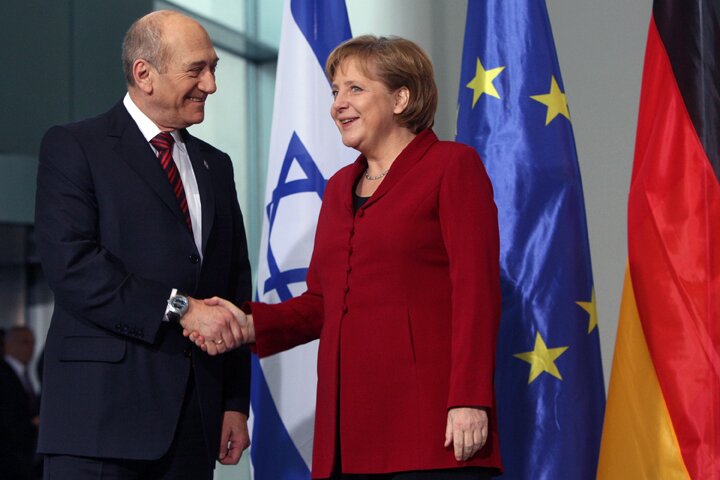
The next day, journalist Manfred Gerstenfeld wrote a column for the Jerusalem Post, “What Angela Merkel Couldn’t Say Out Loud”: “Few in Israel realize that a majority of Germans probably disagree with several key statements she made here about her country’s past—including the mention of shame and guilt” (emphasis ours throughout). Supporting this, a poll conducted by the Bertelsmann Foundation showed that 3 in 10 Germans have no qualms comparing Israel today to fascist Germany.
Israel’s leaders would be naive to think that Merkel’s apology reflects the mood of the majority in Germany. Over half of the German population disagrees with Merkel that Germany has any special responsibility toward Israel because of its history. Because Merkel finds herself at odds with many Germans and certain German leaders, this speech actually portends a dangerous turning point for Germany. Merkel’s days as Germany’s chancellor are nearing their end. Bible prophecy shows a new Charlemagne will soon come on the scene. Perhaps that leader may even arise during Germany’s 2009 federal elections.
Fascism Had a Good Year
Austrian far-right political parties won their greatest victory since the end of World War ii on September 28 when two pro-Nazi parties won nearly a third of the vote in Austria’s federal election. On October 1, the Scotsman wrote:
There is something rotten in the psyche of Austria that allows a protest vote against mainstream political parties to morph into an endorsement of the extreme right. Make no mistake, getting a third of a country to put their X next to the names of men who think SS soldiers were honorable, who want to deport any immigrant caught so much as shoplifting and who want to repeal a law banning Nazi imagery, takes more than mere political chicanery.It takes a national will. The victory for the immigrant-hating, Nazi-idealizing rightist parties on Sunday was a stunning example, if any more were needed, of this land’s inability to deal with a monstrous past.
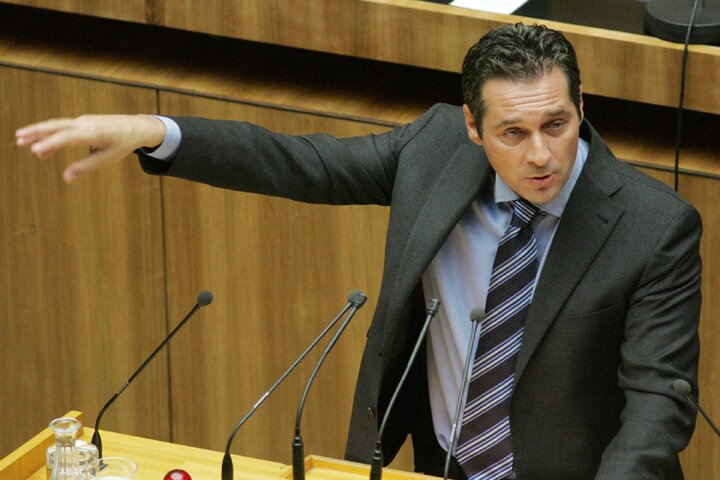
Italy also swung dramatically to the right this year. In April, Silvio Berlusconi became prime minister by agreeing to support the Vatican and by forming a coalition with the post-fascist party Alleanza Nazionale—the direct modern-day successor to Benito Mussolini’s National Fascist Party. Berlusconi’s government has since passed a law that bans criminal investigations of the president, the prime minister, and the speakers of the senate and lower house. The government dispatched thousands of troops to patrol Italy’s city streets, and the Italian defense minister raised controversy by praising Italian soldiers who continued fighting against the Allies even after Italy dropped out of World War ii in 1943.
This shift to right-wing conservatism across Europe is unifying nations on the Continent in the face of some of its problems. This presents a scenario that will allow a single European nation to rise up and dominate a united, imperialistic continent.
Ireland Rejected Lisbon—It Thought
Eurocrats in Brussels are still seeking to unite Europe under their latest draft of the European Constitution, known as the Lisbon Treaty. The Lisbon Treaty is technically supposed to be ratified by each nation in the EU, and most member nations are pushing ratification through their parliaments without consulting the people. In June, Ireland put it to the people, and the Irish rejected it. This should have been the federalist document’s deathblow.
However, Germany responded by subtly threatening economic sanctions against the Irish if they delayed the process of European unification. Ironically, the undemocratic Eurocrats are now giving the Irish people the chance to vote again. Polls show that the Irish, following a battering by EU-funded pro-Union propaganda and some political arm-twisting, will likely give Germany and the EU what they want the second time around.
Bypassing the people’s will and ratifying the Lisbon Treaty advances this undemocratic union’s evolution one more stage toward becoming a literal empire and totalitarian police state.
The Vatican Said Accipe Hoc!
This year has seen the Roman Catholic Church become more assertive on the world scene. The pope started off the year by cutting down Italian Prime Minister Romano Prodi’s government. The Vatican pushed Prodi back in line back in 2007 when he tried legalizing same-sex unions. But in 2008, with talk of the government watering down abortion laws, the Vatican had had enough. Pope Benedict said, Take that! and used loyal Catholics in the government to force a vote of no confidence. The church replaced the misbehaving Prodi with Silvio Berlusconi.
The pope wants jurisdiction over all of Europe. In France, the pope made headway with French President Nicolas Sarkozy in pushing for France to drop its centuries-old laws of secularism. The Vatican also made a bold attempt to enforce Sunday observance across the whole European Union in a failed attempt to make it illegal for employees to work on Sunday. However, watch the Vatican to push harder for and achieve its vision of a Catholic-dominated Europe.
China Held a Majestic Games
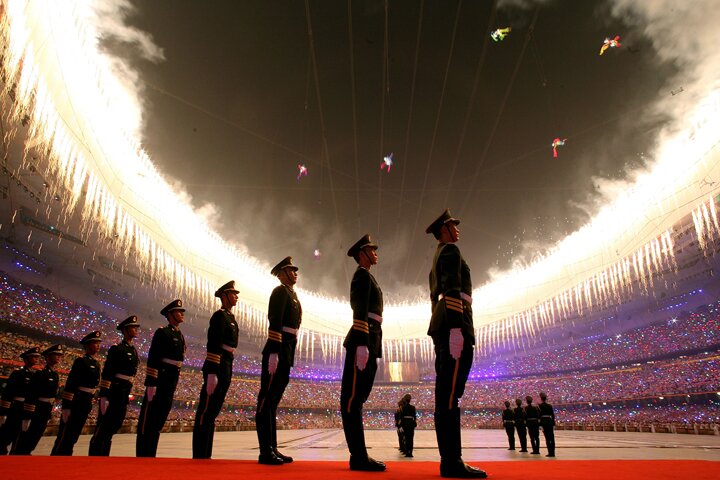
The opening ceremony of the 2008 Olympic Games in Beijing put China on center stage for the whole world to see. For four hours, thousands of Chinese filled the spacious stadium with artistry, high technology, rich heritage, and sheer numbers. The Olympic spotlight revealed the size of China’s populace, economy, wealth, power and ambitions. Like the opening ceremony’s massive and perceptibly martial drum display, the Olympics left many in awe of Beijing’s might.
Beijing has extended itself diplomatically, economically and militarily into anywhere and everywhere there are resources for sale. It has significant economic ties with all but five of Africa’s 53 countries. It has connected itself to the Caribbean and Latin America. It is seeking greater investment and a greater say in the raw-materials industries in Australia, one of its major suppliers of iron ore and coal. It has even made inroads throughout the Middle East—where Beijing’s goal is to have $100 billion in trade by 2010.
Commentators the world over are predicting the next 100 years will be the century of Asia and that the next superpower will be China. These analysts underestimate Europe’s corresponding rise to superpower status, but they do reveal that America’s global influence is plummeting. China—along with its newly empowered and belligerent neighbor Russia—will play a significant role in global affairs in the event-packed months ahead.
Russia Attacked Georgia
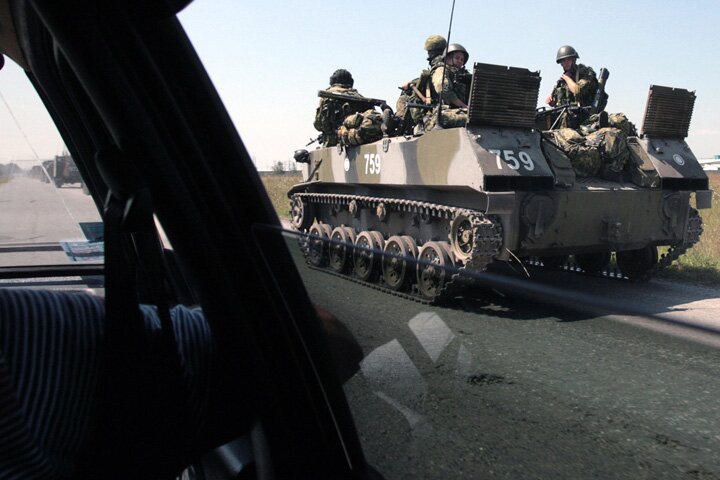
Perhaps the biggest single event of 2008 outside the U.S. was Russia’s invasion of Georgia. The little nation of Georgia, a vital link in a chain of gas pipelines, had been turning toward the West and nato, but Russian tanks put a stop to that. The biblically prophesied “kings of the east” are already marching. The invasion showed how weak the U.S. is in helping its allies and standing down its enemies, and made the trend official: The Russian Army is back.
The invasion also indicated the existence of some kind of agreement between Russia and Germany. Berlin had appeared to favor inviting Georgia into nato, a move that would weaken Russia, but in the last year or so it looked as though Germany changed its mind. Perhaps Putin and the German government agreed that the Kremlin would let Kosovo and the Serbs go in return for the Reichstag staying out of the Caucasus. In short: Germany may have been complicit in Russia attacking Georgia!
The War on Drugs Continued to Go Badly
The United States’ drug addiction is fueling a major crisis south of the border. Vast sums of money flowing into Mexican drug empires is giving drug lords bribing power and a lot of powerful weapons. America’s drug problem is helping turn Mexico into a failed state. Around 5,400 people were killed in Mexico in drug-related violence in 2008, and Mexico’s attorney general expects this total to increase in 2009.
Not only does this destabilize Mexico, but it poses a grave threat to the U.S. If cartels are skilled at smuggling drugs into the country, they could smuggle in even more dangerous things as well. Hezbollah and other terrorist organizations are forming links with Mexican cartels. Some cartels operate 80-foot-long “semi-submersibles,” hard-to-detect boats that float mostly underwater. U.S. defense officials are worried these submarines could be used to smuggle weapons of mass destruction into the United States. Of course, this doesn’t even address the lost war on drugs and the thousands of lives that are rotting away and burning up as the flow of drugs continues unabated.
America’s Financials Melted
The single event that most shook the world in 2008 was the implosion and discrediting of American-style capitalism. Analysts point to subprime mortgages, low lending standards, unsafe leverage, a resulting once-in-a-lifetime credit crunch, and a multitude of other causes, but the root of America’s financial disaster is much more fundamental. America’s economic breakdown is a direct result of its moral breakdown.

The carnage on Wall Street is irreversible. “The week surrounding September 11 of this year will prove to be a more significant turning point than the one that occurred seven years before,” the Trumpet wrote. “It was a stark, blaring announcement to the world that the American economic system has passed the point of no return. And when America’s economy goes, the world as we know it will be radically transformed.”
Bear Stearns, Lehman Brothers, Merrill Lynch, Washington Mutual, Wachovia Corp and IndyMac Bank have disintegrated. JP Morgan Chase, Goldman Sachs, Citigroup and Bank of America are hanging by threads. Many financial institutions would have fallen and shattered already if not for taxpayer bailouts.
America’s financial leadership is gone forever, withdrawn and reinvested in countries with savings and wealth-producing industries: China, Japan, the Middle East oil-producing nations and Germany. This will soon affect the average American’s living standard. Stimulus package band-aids and other federal interventions are reallocating resources from functioning aspects of the economy into government schemes—and taxpayers are left with the enormous bills.
America embraced the biggest spending binge in history. It began with Treasury Secretary Hank Paulson’s three-page proposal for a $700 billion blank check to purchase toxic mortgages from banks. It ended as a 400-page, $800 billion behemoth stuffed with the required pork needed to purchase consenting votes.
Just two months later, the government had committed over $4.6 trillion to combating the economic crisis—more money than the Marshall Plan, the Louisiana Purchase, the race to the moon, the savings-and-loan crisis, the Korean War, the New Deal, the Vietnam War, and nasa’s all-time budget put together and adjusted for inflation. The costs are still mounting, and additional spending plans put the total potential tab even higher.
Yet, Wall Street still remains frozen over. And the economy continues to slow. Consequently, the home-buyer pool has shrunk drastically. When people are losing jobs and can’t get loans, it means that home prices, which have already fallen 25 percent on average—and much more on the coasts—will probably continue to fall for the foreseeable future.
Expect the economy to continue to slow. And that means unemployment will continue to skyrocket. Manufacturers like GM, which lost $80 billion over the past four years, will continue to struggle and will most likely be back at the government trough for more bailouts. Financial companies will be back too.
Europe’s Financials Melted
History books will show that 2008 was the year America’s Wall Street meltdown dragged Europe into a global economic crisis. Unemployment on the Continent is rising, riots have broken out, and economic collapse threatens the European periphery. But history will also show that from the ashes of economic anarchy, an empire is about to be born.
When the euro was created, European Commission economists warned politicians that the monetary union might not survive an economic crisis. Analysts warned that because the EU has no central treasury or debt union and a one-size-fits-all interest rate policy that could not benefit both the Club Med and the German bloc, an economic crisis would sooner or later threaten the EU. This was an acceptable—even desirable—risk for top Eurocrats. If nothing else, such a “beneficial crisis” would force political union.
That crisis has now struck, and it isn’t pretty. Economies are in turmoil, unemployment is shooting up and social upheaval is erupting. Riots in Greece are just the most visible example.
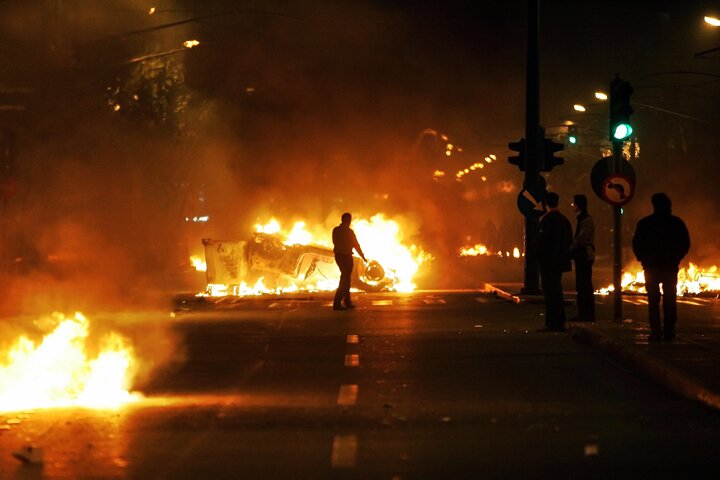
But when Europe is in crisis, the world should watch out. Europe’s history is a series of crises and Germany’s crucial reactions to them. Time after time, it was the pretext of a “crisis”—economic, religious, social, military or otherwise—that opened the door for Europe’s most notorious leaders—Charlemagne, Louis the xiv, Napoleon, Bismarck, Hitler—to rush through and grab power, then unite nations and start bloodbaths.
As the Trumpet has warned for years, Berlin has been planning for this crisis before it even adopted the euro. The crisis in Greece is a forerunner of a whole rash of similar crises soon to break out across Europe. Eurocrats will have a solution. The European nation with the best economy, strongest banking sector, strong influence over the policies of the European Central Bank and the largest gold reserves in Europe will step up: Germany.
As the Trumpet wrote, the economic crisis and the social unrest in Europe “will provide the catalyst for the EU’s leading nation, Germany, to rise to the fore with solutions of its own making. … Biblical prophecy declares that the result will be a European superstate with Germany at the helm. And that is not good news for America, Britain and the little nation called Israel.”
Racism Reloaded
Two thousand eight was the year race tensions rose to the surface once again. Barack Obama’s run for the presidency exposed his close relationship with hate preacher Jeremiah Wright, whose black theology includes “accept[ing] only the love of God which participates in the destruction of the white enemy.” Obama, whose parents left him at a young age, said Wright was “like family” to him, and attended his church for more than 20 years. However, the presidential candidate said he never heard Wright’s vituperative, anti-white, anti-government, conspiracy-theory-laced tirades, which were recorded, promoted and sold by Wright’s Trinity United Church of Christ. More than just raising concerns about the now-president-elect’s values, Wright’s close connection to Obama and his candidacy itself has brought race back to the forefront in America.
A New President Was Elected
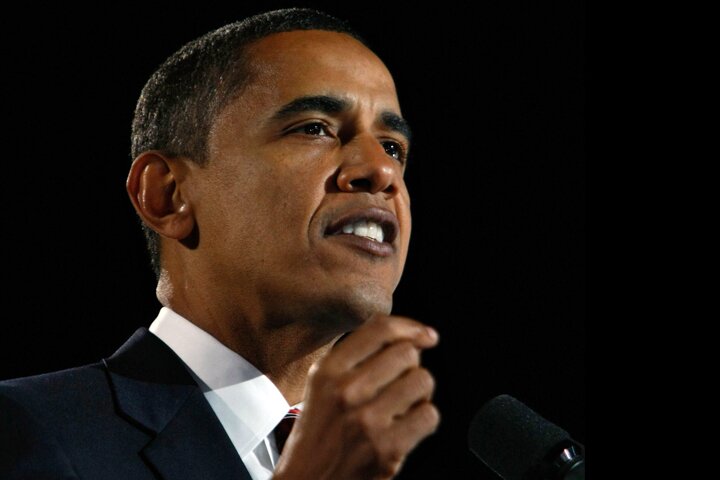
Barack Obama’s campaign promised the world, framing him as the one great uniter and bringer of hope and change who would revolutionize Washington. Many saw the election of a man whose father was black as redemption for past racism. Indeed, his election likely postponed race conflicts that undoubtedly would have broken out had Obama’s supporters—whose hopes had reached into the clouds—been outvoted. But in so voting, America elected one of its most radically liberal senators to head the nation and to sign into law bills passed by a Congress controlled by liberals—on both sides of the aisle. This leadership entrenches dangerous views—and their resultant policies—in the land’s greatest halls of power.
The Trumpet expects race tensions in America to boil over within the next few years, exposing the deep, vitriolic differences that divide the nation and scalding Americans from coast to coast—and burning out its power abroad. Meanwhile, the new administration promises to redistribute wealth, provide millions of jobs, end pollution, bolster education, fix the economy, calm our enemies, heal racism and unite the nation—in a word: unprecedented change. Election promises, and hopes, have never risen so high. But even the administration itself has already said it may take a second four-year term to fix the world, and has appointed a bunch of old hands from the Clinton administration to do it. Those who are looking to one man to change the world in 2009 are going to be sorely disappointed.
The Year Ended
Millions of headlines hurtled past in 2008, and millions more are coming in 2009. The Trumpet will continue to collect and distill the world’s most important stories for you and provide unique insight into not only what is happening, but why. How? By relying on the one Source that has published the headlines millennia in advance of major world events coming to pass!
The Bible contains the revelatory vision of the global forecast on which the Trumpet relies. It warns of religious, financial, political, social and military storms that will combine into a world-engulfing vortex—an event that will prove that despite all our technology, all our policies, all our “freedoms” and all our weapons, we don’t know how to govern a peaceful, abundant, happy society.
That’s the short-term. But the long-term forecast calls for clear skies over an entirely new world full of happiness, giving, peace, prosperity, honesty, fairness and love. That future is coming quicker than you might think—in a matter not of decades, but of years or months. The World Tomorrow is just as real as the perfect storm ahead, the biggest stories of today, and the biggest stories of yesterday—all of which were accurately prophesied in the pages of your Bible. You need to keep a weather eye out for the top stories of 2009, but thankfully you can do so with hope for what’s next!
